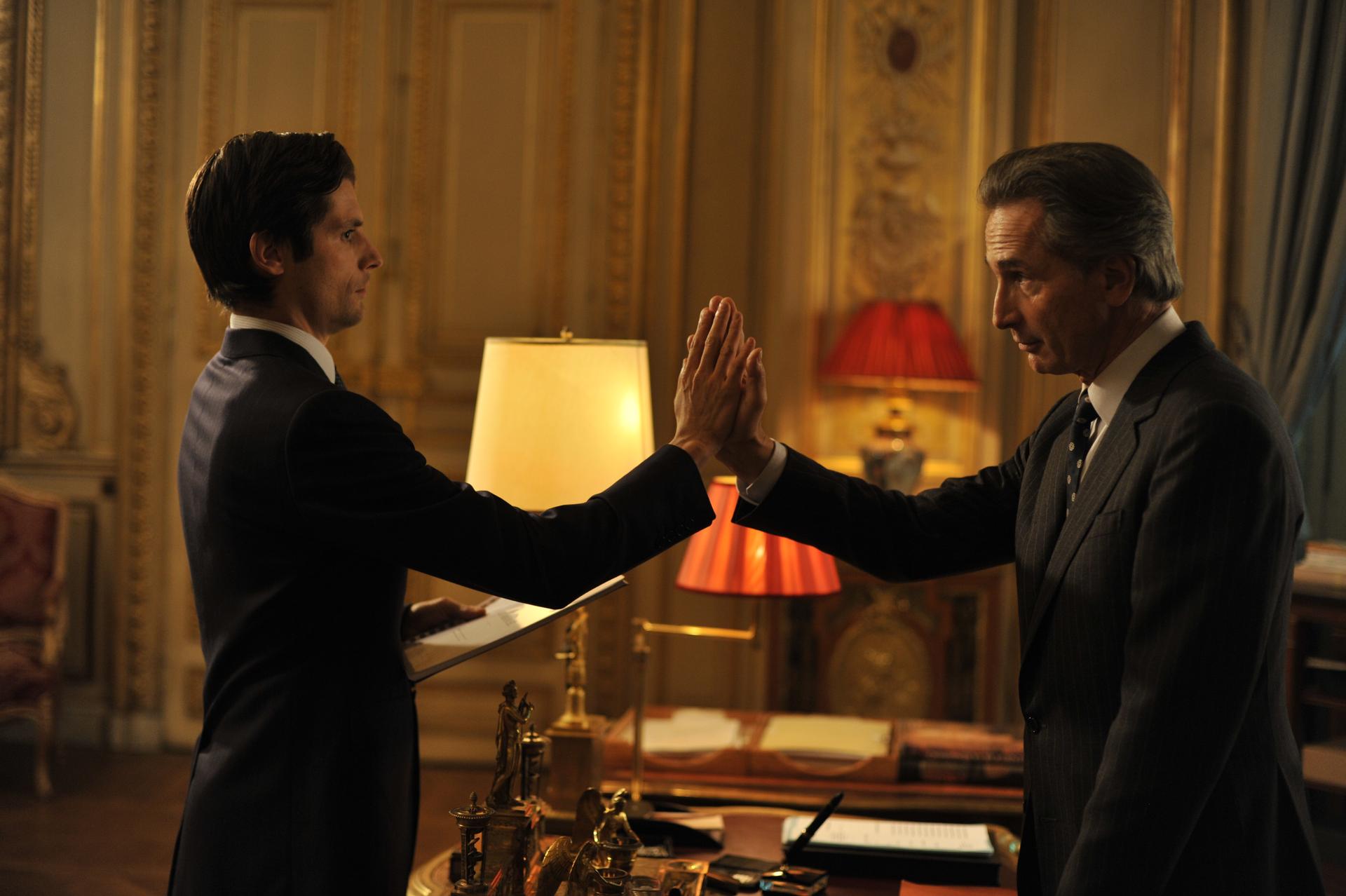Here’s how the life of a French official became the satirical film, ‘The French Minister’
Speech writer Arthur Vlaminck (Raphaël Personnaz) tries to high-five French Foreign Minister Alexandre Taillard de Worms (Thierry Lhermitte) in Bertrand Tavernier’s new film, “The French Minister.”
What's so funny about working for the French foreign minister? It turns out quite a lot.
Antonin Baudry was young, smart and ambitious when he was hired in 2002 to write speeches for then-Foreign Minister Dominique de Villepin.
These were heady days, just months after 9/11, and France was being pressured by the US government to support George W. Bush and his plans to attack Iraq. While it may not exactly sound like a romp, Antonin Baudry turns his government experience into a French farce-meets-The Office in a funny graphic novel called "Quai d'Orsay." It will be released in English in the United States in April under the title "Weapons of Mass Diplomacy".
Baudry, who is now the French cultural counselor in the United States, originally wrote Quai d'Orsay using the pen name, Abel Lanzac. Baudry insists he wasn't trying to hide.
"It was a pen name, which is very common in France," he says. "A lot of writers have pen names. I used a pen name because I really wanted to separate my daily activities from my writing and I also wanted to have the freedom to say whatever I wanted."
The graphic novel was a success in France and has now been turned into a film. It's a comedy and has just been released in the US under the title, "The French Minister," directed by Bernard Tavernier. Baudry says his book and film are not about revealing secrets.
"It's really a way to show how the staff of the French foreign ministry actually functioned during a tense time and how the foreign minister went about making difficult decisions." Baudry says the whole experience somehow lent itself to satire.
In the graphic novel and the film, the French foreign ministry comes across as chaotic, capricious and disorganized, with huge egos and odd personalities.
"It's very common that, in any organization, that when there are a lot of emergencies at the same time, there is a kind of frantic atmosphere," says Baudry. "Somehow, there is a kind of hysteria, but it's also true that there are very dedicated, serious, smart people trying to do their job."
Baudry hopes that the graphic novel and film show how that chaotic process can actually produce good decisions.
He says his background was as a writer, so when he was hired to worked (in real life) for Dominique de Villepin, he knew little about the world of diplomacy.
"I was surprised, basically, by everything," he says. "I was surprised by the grandeur, the magnificent buildings and palaces that contrasted with the very small offices where everyone was working."
He was also surpised by the dedication of the staff. "People were there day and night, 24/7, working, working, working. They were trying to solve crises, trying to find correct answers to many, many problems."
Baudry says some of the civil servants he worked with left lasting impressions on him. "They were really, for me, models. They sacrificed their private life for the common good."
Alexandre Taillard de Worms, the fictional French foreign minister in Baudry's graphic novel, shares many traits with the one he worked for, Dominique de Villepin.
"He has a strong vision of what he believes must be done," Baudry says. "He's always moving, always speaking and never takes the time to stop and try to figure out abstractions."
And in real life, those traits served Baudry's boss, De Villepin, well.
De Villepin famously opposed the US plan to attack Iraq after 9/11.
"He was really convinced," says Baudry. "And when he made his famous speech at the United Nations, everyone in France was watching it. And it really changed the perception in France. People said, 'Yes, he's right about that.'" When asked if he helped write that speech, Baudry says he only helped — that it was de Villepin's vision and ideas.
